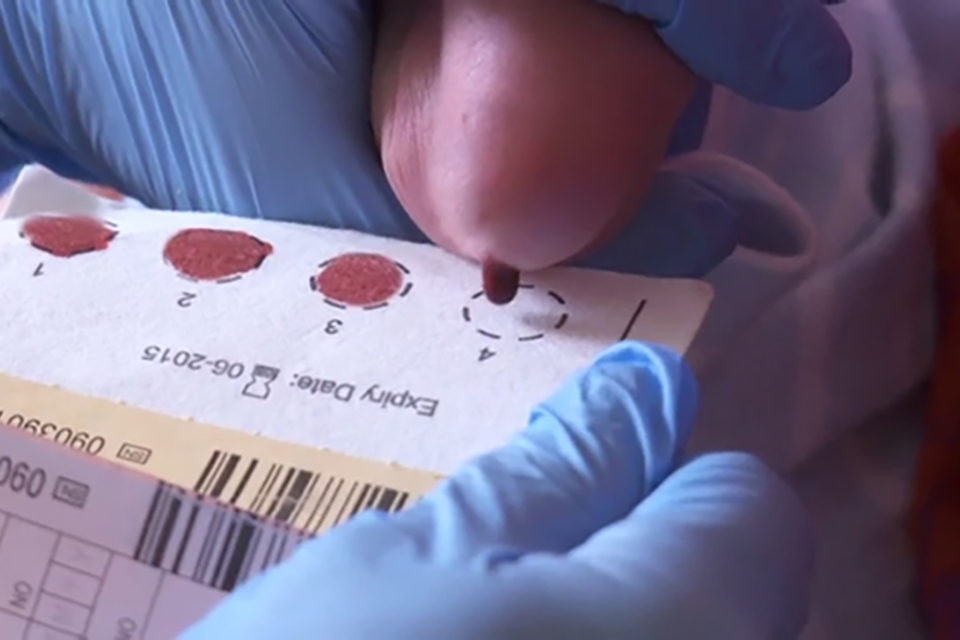
The UK National Screening Committee (UK NSC) recommended that screening babies for severe combined immune deficiency (SCID) should be evaluated in live NHS services to help answer some important questions. Following ministerial approval, this in-service evaluation (ISE) was launched in September 2021 by the Department of Health and Social Care (DHSC) and NHS England (NHSE).
The ISE has now come to an end after 2 and a half years and the ISE team is busy collecting information from laboratories and immunology services. The team is working hard with newborn screening experts, statisticians and health economists to analyse the data and produce a report for the UK NSC.
The ISE results and report will inform the UK NSC’s recommendation as to whether screening for SCID should become part of the NHS newborn blood spot (NBS) screening programme in England.
In the meantime, areas that have been screening babies for SCID as part of the ISE will continue to do so in exactly the same way.
About SCID
SCID is the name for a group of rare conditions that make it very hard to fight off common infections like pneumonia and meningitis.
You may have heard of babies with SCID having to live in a ‘bubble’ to avoid infections. Sadly, if they are not treated, babies with SCID usually die by 2 years of age.
Testing for SCID uses the same blood spot sample as that used for the other 9 NBS conditions. No extra blood spots are needed.
Screening could help to find and treat babies with SCID earlier.
Preliminary results
The ISE has covered around two-thirds of the newborn population of England.
Approximately 900,000 babies have been screened for SCID during the evaluation period. As a result, we referred around 590 babies with abnormal results. Some of these babies have been diagnosed with SCID.
In addition to detecting cases of SCID, the ISE has also led to the detection of babies with other immunological conditions.
Many thanks to all involved
We would not have been able to plan and deliver this ISE without the hard work of many healthcare professionals, including screening coordinators, midwives, nurses, laboratory staff, paediatricians, neonatologists, child health services, regional commissioners, statisticians, immunology services, and immunisation leads.
A huge thank you to all involved. We will keep you updated via this blog with further information and progress later in the year.
Next steps
A team of internal and external stakeholders, including doctors, nurses, academics, commissioners, and patient and charity representatives, will contribute to the final report that will be submitted to the UK NSC.
The UK NSC will review the report and then consult for 3 months before submitting a recommendation to ministers for their decision on whether screening for SCID should become part of the NHS NBS screening programme.
We will also be looking to see if there are any lessons to be learnt for future ISEs and screening programme implementations.
E-learning and other resources
See SCID screening evaluation information and resources.
The SCID e-Learning module, crib sheet and screening tests for you and your baby (STFYAYB) are still available to support healthcare professionals offering NBS screening.
Keep up to date
The UK NSC blog provides up to date news from the UK National Screening Committee. You can register to receive updates direct to your inbox, so there’s no need to keep checking for new articles. If you have any questions about this blog article, or about the work of the UK NSC, email screeninginformation@dhsc.gov.uk.